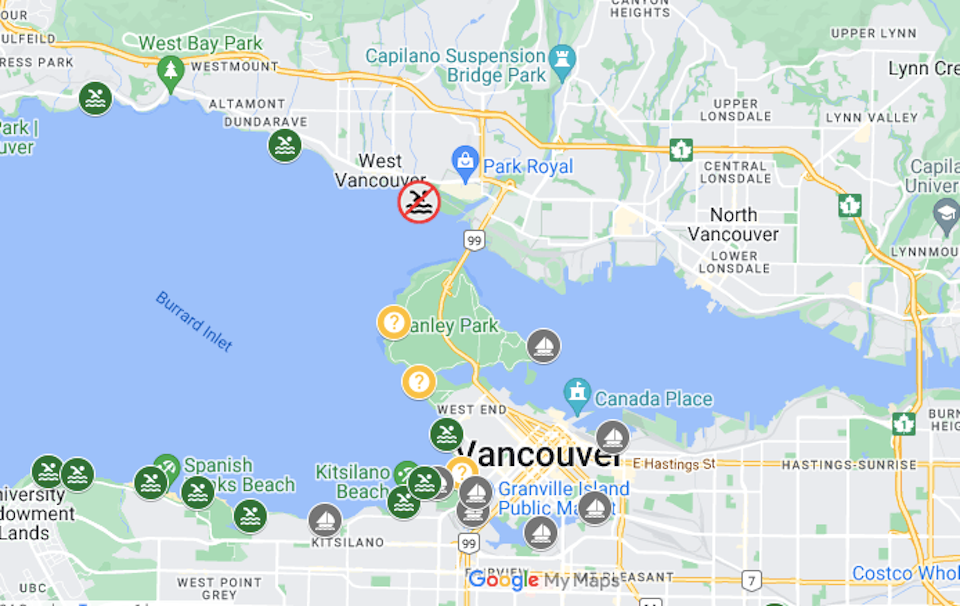Three Metro Vancouver beaches are under investigation and one is unsafe for swimming due to high levels of E.coli.
Vancouver Coastal Health (VCH) works with Metro Vancouver, local governments and other agencies to monitor beach water quality throughout the swimming season.
Throughout the summer months, beach-goers can go online to check out the water advisories for beaches and lakes across the VCH region. It maintains a map that shows places that are not safe for swimming due to the presence of E. coli, a bacterium commonly found in the intestinal tract of animals and humans.
High counts of E. coli in recreational water may increase the chances of gastrointestinal, and upper respiratory illnesses, and skin/eye infections.
Health Canada introduced new last year Guidelines for Canadian Recreational Water Quality that require beach operators to investigate water quality issues when a result reaches 235 E.coli/100 mL.
There will be a yellow flag icon on the VCH Beach Water Quality webpage when an investigation is underway. The icon does not indicate a public health risk but that resampling is required to "determine if environmental factors, such as weather conditions or wildlife populations, may have influenced the sample result."
VCH told V.I.A. that this "level does not imply that the beach necessarily poses a health risk, and swimming is not restricted."
Beaches with advisories in Metro Vancouver
Three beaches in the City of Vancouver are under investigation, including Third, Second, and Sunset. No signage is posted at beaches which are under investigation.
When a beach has a geometric mean of greater than 200 E. coli/100ml or two consecutive single samples over 400 E. coli/100ml, a "not suitable for swimming" advisory is issued.
Ambleside Park in North Vancouver is currently unsafe for swimming.
According to VCH, stormwater runoff can come from recreational vehicles, animal waste and sewer overflows causing contamination. Other possible sources are leaking septic tanks and discharge from boats.



